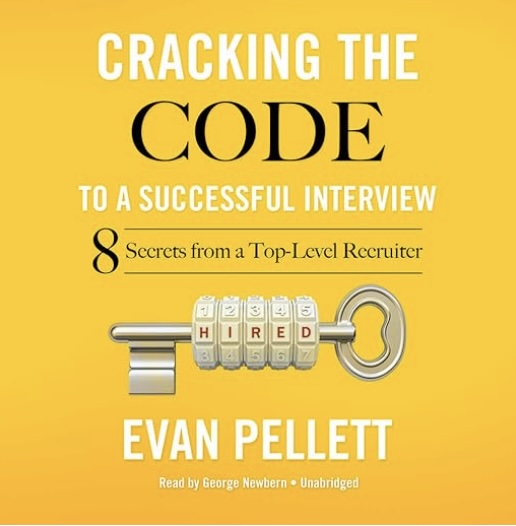Mastering the Interview: How I Transformed My Approach

Create your R.E.A.P. & (R.I.C.H.)Script
Cracking the Code to a Successful Interview: 15 Insider Secrets from a Top-Level Recruiter
There are few things in life as awkward or intimidating as being interviewed. A few years ago, I went through a career transition. The details aren’t important. What’s important is that I wasn’t prepared. I’d been at Cisco for almost 20 years. They were good years. I enjoyed what I was doing and I was rewarded for my hard work through promotions or by working on increasingly higher-profile projects. But something needed to change. I felt I had reached a plateau, and despite my comfort, I needed to move on from Cisco.
How? I hadn’t seriously been in the job market for years—let alone been interviewed.
Sure, there was the odd interview or the casual recruiter who wanted to talk, but nothing serious (or at least I didn’t take it seriously). Okay, that’s not entirely true—while I thought I was doing everything to prepare, I didn’t have the practice, I didn’t have the skills, and most importantly, I didn’t have my pitch; my script.
And this is where “Cracking the Code to a Successful Interview” really helped me. Not only was it a guide on how to create my personalized script, it gave me permission (more importantly, it demanded of me) to deliver my script regardless of what the interviewer asked. That permission set the tone of the interview and allowed me to talk about all the good work and achievements I’d made throughout my career until that point and get that out on the table. I worked hard on my script. I followed the direction. And, you know what? It worked.
The book taught me that an effective interview script should accomplish several things:
- Highlight your most impressive accomplishments
- Demonstrate your problem-solving abilities
- Show how you’ve added value in previous roles
- Address potential concerns before they become objections
I crafted a 2-3 minute narrative that covered my career trajectory, emphasizing projects where I had made significant impacts. The beauty of having this script was that I could steer almost any question back to my strengths.
The Template That Changed My Interviews
So, for everyone out there looking for the next career opportunity, here’s the template I used. Hopefully it helps you:
Opening (30 seconds): Brief introduction covering your current role and years of experience.
Career Highlights (60 seconds): 2-3 major accomplishments that demonstrate your value.
Why You’re Looking (30 seconds): Positive framing of your career transition.
Why This Role/Company (30 seconds): Connect your experience to their needs.
The R . E . A . P & (R . I . C . H) Method
Results, Energy, and Attitude
Summarize and deliver your top 6 to 10 Achievements summarized in 90 seconds
These should be statements of facts
They should be delivered as matter-of-factly but also move, and excite the interviewer
Process (how did you achieve your results)
Pause right after your results statement… “The way I did this….” …So, that’s a little bit about my process…”
Relationship Building
A big fear of hiring managers is having a personality conflict on the team. The ability to create and maintain relationships on the team alleviates this fear. Can you play nicely within the company, create rapport and are you approachable? Can you sustain those relationships? Can you bring new and beneficial relationships to the business?
How did you build and nurture your relationships?
Interview the interviewer
Prepare two to four questions relevant to the position and elicit a positive response from the hiring manager.
Ask about aspects of the job you are truly interested in.
💡 “Tell me about some of your most successful people?”
💡 How can I help your team?
💡 If you hired me today what would you have me help you and your team in the next three months?
Close the interview
Ask for the job!
I really enjoyed our time together, can you tell me what happens next in the process?
is there someone else you want me to meet with?
Will you be moving me on to the next steps in the process?
Is there any else I need to do before you offer me this opportunity?
Is there anything I can tell you or expand on that would make you more comfortable with my experience? [pause]
I really enjoyed my time today with you, thank you for being so informative I see a lot of benefits and value at Red Hat, I’d really like to be part of this team
Probe for concerns or objections. Address before the interview ends.
Do you feel comfortable with my experience?
Keeping It Real the importance of Humanity
The most valuable lesson I learned was that interviews aren’t interrogations—they’re opportunities to tell your story. By preparing a compelling narrative and practicing it until it feels natural, you transform the interview from an intimidating obstacle into a platform for showcasing your value. Have you used a similar approach in interviews?